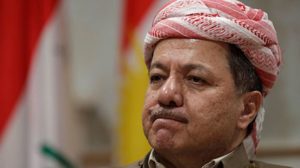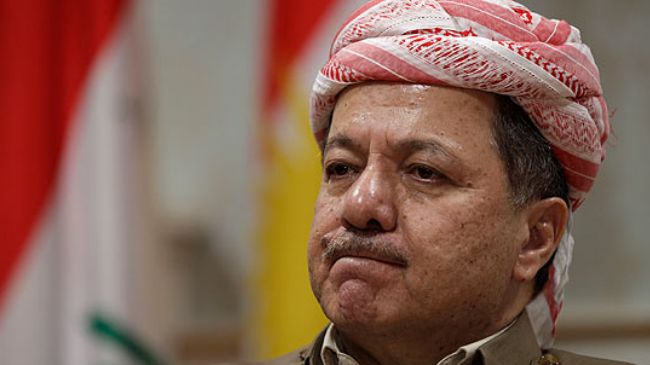
International pressure has raised the stakes of the planned referendum, but the Kurds have made their case even if the vote is canceled.
Nearly every major regional and international player stands against the independence referendum that the Kurdistan Regional Government has planned for September 25. In Washington, the White House issued a statement on September 15 asking the KRG to call it off, while the State Department hardened this position five days later, declaring that the United States “strongly opposes” the vote and urging the Kurds to instead pursue “a serious and sustained dialogue with the central government, facilitated by the United States and United Nations, and other partners, on all matters of concern.” The statement warned that this alternative would be off the table if the Kurds proceed with the referendum. The UN, Britain, and several EU members have reinforced the U.S. position, while the KRG’s neighbors have gone further by threatening to isolate it.
The decision to proceed with the referendum lies solely with KRG president Masoud Barzani, who has essentially cornered himself. The rising pressure may spur him to delay the vote or limit its scope.
THE BEST NEXT MOVE
For now, Barzani remains adamant about carrying out the referendum and has declined the proposed alternatives. His campaign for independence has been grounded in frustration with Baghdad, which he sees as dominated by anti-Kurdish Shia parties under Iran’s sway. The KRG is also in a strong position after fighting the Islamic State in coordination with the international coalition. The resultant Kurdish nationalist fervor has paid local dividends by galvanizing the public, creating greater unity and drawing attention away from the KRG’s domestic political and economic woes.
Nevertheless, the referendum remains a gamble. It could pave the way to the Kurds’ dream of statehood, but it could also cost them the relative stability and prosperity they have carved out of an otherwise chaotic Iraq. Because Barzani has exerted unprecedented zeal and leadership in rallying popular and legislative support for independence, he is now the only KRG actor capable of defining a viable alternative to the referendum. In his eyes, the U.S.-UN alternative lacks a crucial element: a pathway to independence.
Barzani also believes that further negotiations with Baghdad would have little chance of success. This is an understandable view; he has repeatedly pointed out the central government’s failure to abide by Iraq’s constitution and federalist system. In the end, however, some of the blame for the breakdown in negotiations falls on his lap. Many referendum supporters are adamant that KRG relations with Baghdad are broken beyond repair, at least within the framework of a unified Iraq. Yet the alternatives offered to Barzani promise to do just that — fix the protracted conflicts over money, oil, and borders. Even the Kurds admit that past U.S. mediation has had some success, particularly on oil and gas issues. At the same time, though, they lament the lack of progress on disputed territories and the federal budget, and they no doubt realize that outside pressure has essentially internationalized these grievances — which is itself a victory of sorts.
BARZANI’S CALCULUS
Domestically, Barzani has amassed more than enough popular and political support to continue with the referendum. Opposing it has become costly for his rivals, and a feeble “No” campaign has only bolstered the “Yes” camp. A parliamentary vote to postpone the referendum would have been a face-saving exit for him, but the legislature endorsed it despite two of the five major political parties boycotting the meeting. As for international opposition, Barzani seems to believe that the West will not take punitive measures against the KRG simply for holding a nonbinding, unilateral poll. Yet Turkey and Iran could cause the Kurds significant harm.
The KRG economy depends on oil exports piped through Turkey. At the UN General Assembly earlier this week, Turkish President Recep Tayyip Erdogan criticized the referendum at the same time that his military was conducting exercises on the KRG’s northern border.
For its part, Iran has threatened to cease economic and security cooperation with the KRG, and to escalate violence against Iranian Kurdish opposition groups based inside Iraqi Kurdistan. Tehran also exercises leverage over the Iraqi government and the Popular Mobilization Units; this influence may have played a role in the Iraqi parliament’s decision to denounce the referendum and authorize the prime minister to spare no effort in curtailing it. Shia militia leaders have voiced their own threats against the Kurdish move, though prominent Shia figure Grand Ayatollah Ali al-Sistani has remained silent.
As expected, however, such criticism has only cemented Kurdish resolve, and Barzani has downplayed the external threats. He is apparently counting on the KRG’s positive bilateral relations with Turkey and Iran. The Kurdish region has been an attractive market for goods and services from both countries, so sanctions or other anti-referendum moves would hurt them as well. Barzani is also playing a balancing act, seemingly doubting that Turkey, Iran, and the United States would ever countenance a unified stance on punishing the KRG. If one country unilaterally penalizes the Kurds, he is confident that another will come to their aid; for example, amid the escalating international pressure, Russia recently announced that it would increase its investment in the KRG energy sector. Yet such balancing acts could backfire — for instance, after Israel’s prime minister voiced support for the referendum, Turkey and Iran hardened their opposition.
Another reason for the Kurds’ confident posturing could be their proven ability to create facts on the ground and impose the status quo on rivals. This is partly how the KRG became an oil-exporting region despite Baghdad’s opposition. The referendum could embolden the KRG to solidify its grip on the disputed territories it currently controls, and Barzani seems confident that the world would adapt to the redrawn map.
Yet Erbil should not blind itself to the potential risks of such action. Even a temporary shutdown of the KRG’s export pipeline or borders would cripple its economy, and its food security is heavily dependent on imports. Moreover, Baghdad still controls all of Iraq’s airspace and could halt overflights and traffic at the KRG’s two international airports. In this sense, Barzani has invested his entire political capital on a pathway toward independence. By seemingly dismissing the risk of dire consequences, he has put the onus of finding a way out on those who oppose the referendum.
WHAT TO EXPECT ON SEPTEMBER 25
Between now and referendum day, one of several scenarios may unfold. First, the vote could be cancelled if Barzani accepts one of the proposed alternatives. Kurdish leaders are taking the international backlash seriously, and Barzani still hopes that ongoing negotiations with various governments will result in an offer he can sell to the people. He recently noted that the massive pro-independence rallies across Kurdistan served as an informal referendum of sorts, perhaps signaling his willingness to cancel the formal vote.
Turkey may have the ultimate influence in this scenario; its National Security Council will convene on September 22 to determine its official response to the referendum, and any threatening announcements emerging from that meeting could affect Barzani’s calculus. The fate of this scenario also hinges on Washington’s leverage in Baghdad. At least in public, U.S. pressure has been squarely on the KRG to postpone the referendum, and Baghdad has made no effort to appease Erbil, instead repeating its unwillingness to compromise. This apparent inflexibility could undermine the U.S. counterproposal.
Second, Barzani might take his chances and proceed with the referendum, risking the eruption of armed conflict with Baghdad. This scenario would indicate that U.S. leverage in Iraq has fully waned, including over the KRG. Washington has made its opposition to the referendum clear ever since Barzani announced it in June, but the administration did not buttress its stance with adequate carrots and sticks. If the vote takes place, the United States may find itself compelled to take a tougher stance against the KRG, which would not be constructive in a previously positive relationship.
Third, Barzani may decide to save face and mitigate risks by limiting the referendum to the three recognized KRG provinces while canceling it in the disputed territories. Erbil could plausibly claim that it is unable to secure these territories adequately to hold the vote there, since the areas in question have witnessed sporadic violence and threats by Shia militias in recent weeks. But this scenario would hold uncertain political consequences for Barzani, since the disputed oil-rich territory of Kirkuk remains at the heart of the KRG’s disagreements with Baghdad.
Bilal Wahab is a Soref Fellow at The Washington Institute.

Source: The Washington Institute for Middle East Policy, September 22, 2017
http://www.washingtoninstitute.org/policy-analysis/view/is-the-kurdish-referendum-mission-accomplished-for-barzani








Comment here